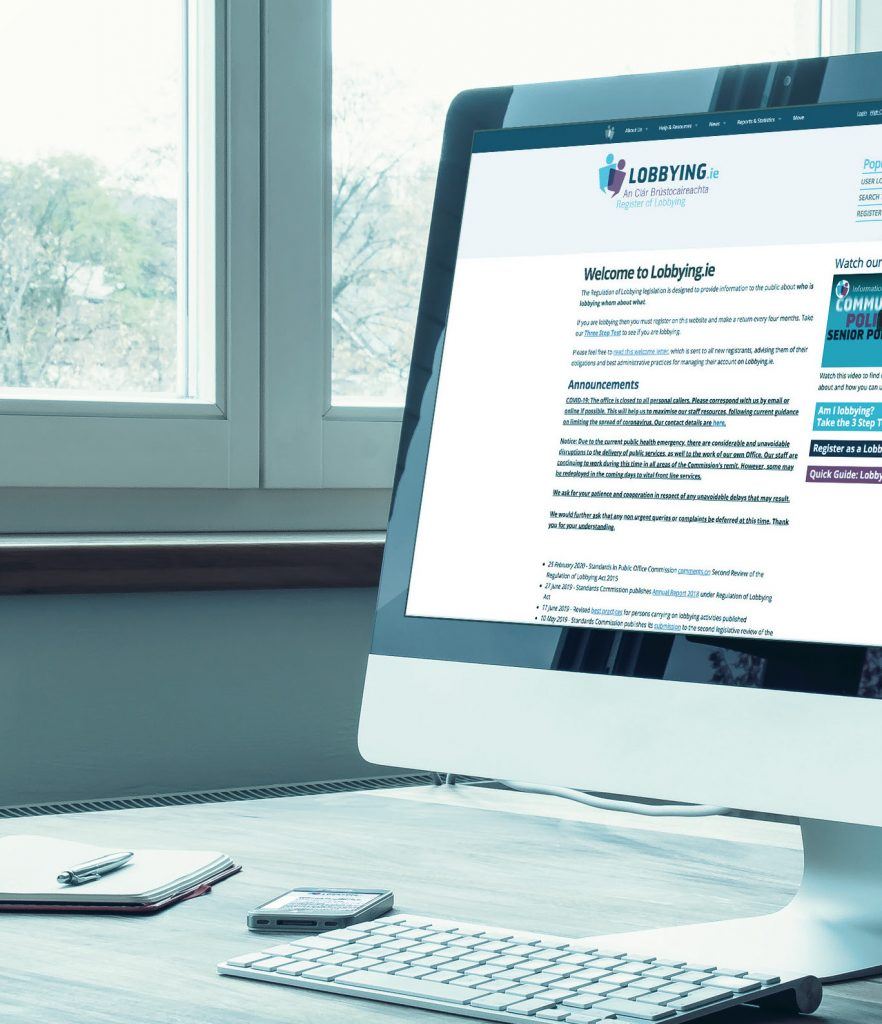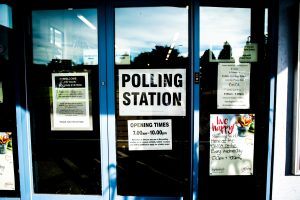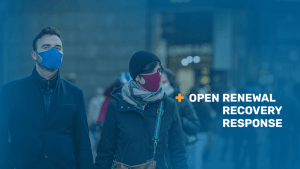Common Challenges in Lobbying Transparency: Lessons from Europe
Retos comunes en la transparencia del cabildeo: Lecciones desde Europa
LobbyingLobbying transparency allows the public to ensure that there is diversity of participation and contribution to public decision-making. Technical specifications: Policies and actions affecting lobbying... often gets a bad rap, framed as an activity fueled by scandals. But, lobbying is a legitimate activity, allowing different interest groups to demonstrate their views to public officials. In a strong democracy, this practice can strengthen the quality of policy-making and public debate and supports free speech. However, without the proper safeguards in place, unregulated lobbying can erode public trust as it can allow powerful groups with privileged access to further their interests at the expense of public good.
Many OGP members are using their OGP action plans to advance concrete lobbying reforms. According to data from OGP’s Independent Reporting Mechanism, lobbying, along with beneficial ownership transparency, has been the most ambitious policy area in Europe for OGP members. Reforms include establishing mandatory public registers of meetings between lobbyists and public officials, such as in Madrid, Spain and Ireland.
So what is driving these reforms? In the wake of multiple scandals, such as former UK Prime Minister David Cameron’s alleged dealings with the now defunct company Greensill Capital, elected officials, citizen groups, and even lobbying organizations themselves, are pushing for more transparencyAccording to OGP’s Articles of Governance, transparency occurs when “government-held information (including on activities and decisions) is open, comprehensive, timely, freely available to the pub... More, accountability and accessibility of lobbying practices, positioning these reforms within a wider package of initiatives to support transparency and integrity of political decision making. By regulating lobbying, we can shine a light on who is meeting whom about which issues, what money is spent to influence decisions, and how those decisions are ultimately made.
Common Challenges in Lobbying Reform
With lobbying reform garnering growing interest among OGP members both in Europe and beyond, reformers can learn from peers working on similar initiatives. Here are a few common challenges faced by reformers based on our conversations with lobbying reform advocates in Europe:
- Defining lobbying: This is an ongoing debate in lobbying regulationGovernment reformers are developing regulations that enshrine values of transparency, participation, and accountability in government practices. Technical specifications: Act of creating or reforming .... Who is a lobbyist? What counts as lobbying? To move forward with regulation, stakeholders must first agree on a commonly accepted set of definitions. Having a common understanding of lobbying is crucial not only for regulators but lobbying and advocacy groups as well, as they require clarity on how their activities are affected.
- Measuring success: To gauge the success of lobbying regulation, reformers must move beyond numerical indicators (e.g. how many lobbyists have registered in a database) to answer key questions such as: How do we know if the regulation has actually leveled the playing field for smaller businesses? Has this reform prevented powerful actors from dominating decision-making? Has the quality of policy-making improved?
- Coordinating across jurisdictions: Lobbying activities are becoming more and more difficult to follow as they are conducted at multiple levels. In Europe lobbying is carried out at the EU, national, and local levels. In Spain, for example, some regions have established lobbying registers, while no register at the national level currently exists. (This may change in the future, as Spain has committed to establishing a national register in its latest OGP action plan.) To implement impactful lobbying regulation, reformers must coordinate among multiple levels and across jurisdictions.
- Navigating a constantly evolving landscape: As the landscape of lobbying regulation is becoming increasingly complex, with evolving definitions, new channels for lobbying such as social media, and a diverse set of actors, legal frameworks often struggle to keep up. International institutions such as the OECD encourage countries to take a more comprehensive approach to encompass all the practices, including practices such as indirect lobbying, as noted in their recent report.
OGP as a Platform for Reform
Comprehensive lobbying reform requires multi-stakeholder collaboration between government, legislative bodies, civil society, and the private sectorGovernments are working to open private sector practices as well — including through beneficial ownership transparency, open contracting, and regulating environmental standards. Technical specificat... More. For example, understanding the needs and concerns of private sector actors (like maintaining reputations and ethical standards, and ensuring a level playing field for smaller businesses) is crucial to secure buy-in. Civil society actors, including investigative journalists, can play an important role in uncovering scandals and communicating the benefits of lobbying regulation.
Collaborative by design, the OGP action planning process can serve as a platform to bring these groups together to co-create ambitious and impactful lobbying reforms. Many OGP members in Europe have found the OGP platform to be an effective tool for advancing lobbying reform initiatives. For examples of sample OGP commitments on lobbying, see Transparency International’s brief here and International IDEA’s brief here.

Ireland used their OGP action planAction plans are at the core of a government’s participation in OGP. They are the product of a co-creation process in which government and civil society jointly develop commitments to open governmen... to commit to the launch of lobbying.ie, a lobby register “designed to provide information to the public about who is lobbying whom about what”.PHOTO: Credit: Lobbying.ie
Looking Forward: Lobbying Reform for Open Renewal
As the world recovers from the COVID-19 pandemic, the OGP Co-Chairs the Republic of Korea and Maria Baron have called on the OGP community to make commitments to tackle the systematic weaknesses in our societies that for too long have held too many back. Lobbying reform can be a key component of comprehensive anti-corruption efforts and ensure that recovery funds are directed towards the public good and not into the pockets of the politically connected. Importantly, while corruption scandals can be the impetus for lobbying reform, they don’t always ensure strong reform. This requires collaborative work among stakeholders to put in place the safeguards needed to prevent powerful groups furthering their interests at the expense of the public good.
El cabildeo en ocasiones tiene mala reputación, pues se interpreta como una actividad rodeada de escándalos. En realidad, el cabildeo es una actividad legítima que permite a los grupos presentar sus opiniones a los funcionarios. En las democracias sólidas, esta práctica puede fortalecer la calidad del diseño de políticas, el debate público y la libertad de expresión. Sin embargo, cuando no se tienen las salvaguardas necesarias, el cabildeo puede debilitar la confianza del público, pues hay grupos poderosos con acceso privilegiado que podrían impulsar sus intereses a expensas del bien común.
Muchos miembros de OGP están utilizando sus planes de acción de OGP para impulsar reformas del cabildeo concretas. Según datos del Mecanismo de Revisión Independiente de OGP, el cabildeo y la transparencia en los beneficiarios reales son las áreas de política más ambiciosas de Europa para los miembros de OGP. Algunas reformas creadas en este sentido son la creación de registros obligatorios y públicos de las reuniones realizadas entre grupos de cabildeo y funcionarios como el caso de Madrid, España e Irlanda.
¿Qué está impulsando estas reformas? Tras una serie de escándalos como el involucramiento del ex ministro del Reino Unido David Cameron en supuestos negocios con la ahora extinta empresa Greensill Capital, grupos ciudadanos y organizaciones de cabildeo están promoviendo una mayor transparencia, rendición de cuentas y accesibilidad de las prácticas de cabildeo, posicionado estas reformas como parte de las iniciativas de apoyo a la transparencia. Si regulamos el cabildeo, podremos arrojar luz sobre quién se reúne con quién y cómo se toman las decisiones.
Retos comunes en las reformas de cabildeo
Los miembros de OGP de Europa y otras regiones están tomando interés en las reformas de cabildeo y los reformadores pueden aprender de otras iniciativas similares. A continuación presentamos algunos retos comunes que enfrenta los reformadores y que identificamos de algunas conversaciones con promotores de las reformas de cabildeo en Europa.
- Definición del cabildeo. Este tema es un debate continuo en las regulaciones del cabildeo. ¿Quién es un cabildero? ¿Qué actividades constituyen cabildeo? Para avanzar con la regulación, los primeros actores deberán acordar una serie de definiciones comunes. Tener un entendimiento común sobre el cabildeo es fundamental no solo para los reguladores, sino también para los grupos de cabildeo porque requieren de claridad sobre sus actividades.
- Medidas de éxito: Para medir el éxito en la regulación del cabildeo, los reformadores deberán crear más que indicadores numéricos (por ejemplo cuántos cabilderos están registrados en las bases de datos) y responder preguntas clave como: ¿Cómo sabemos si la regulación efectivamente mejoró las condiciones para las pequeñas empresas? ¿Cómo sabemos si la reforma evitó que los actores más poderosos dominen la toma de decisiones? ¿Ha mejorado la calidad del diseño de las políticas?
- Coordinación entre jurisdicciones: Las actividades de cabildeo son cada vez más difíciles de monitorear porque se llevan a cabo a diversos niveles. Por ejemplo, en España, algunas regiones han creado registros de cabildeos pero no existen registros a nivel nacional. (Esto puede cambiar en el futuro, ya que España se ha comprometido a establecer un registro nacional en su más reciente plan de acción de OGP.) Para implementar una medida de regulación de cabildeo que tenga impacto, los reformadores deberán coordinarse entre diversos niveles y jurisdicciones.
- Navegar un entorno cambiante: El entorno de la regulación del cabildeo es cada vez más complejo y tiene definiciones cambiantes y nuevos canales como las redes sociales por lo que a algunos actores y marcos legales se les dificulta mantenerse actualizados. Instituciones internacionales como la OCDE exhortan a los países a tomar un enfoque más integral y abarcar todas las prácticas, incluso las del cabildeo indirecto, como lo explican en su más reciente reporte.
OGP, una plataforma para diseñar reformas
Las reformas integrales de cabildeo requieren de una colaboración multiactor entre los gobiernos, organismos legislativos, la sociedad civil y el sector privado. Por ejemplo, entender las necesidades y preocupaciones del sector privado (por ejemplo mantener su reputación y estándares éticos y asegurar que las condiciones sean justas para las pequeñas empresas) es fundamental para conseguir su apoyo. Los actores de la sociedad civil, incluyendo periodistas de investigación, pueden jugar un papel importante en descubrir escándalos y comunicar los beneficios de la regulación del cabildeo.
Al ser colaborativo por diseño, el proceso de diseño de los planes de acción pueden servir como una plataforma para reunir a estos grupos para cocrear reformas ambiciosas y de alto impacto. Para muchos miembros de OGP de Europa, la plataforma de OGP es una herramienta efectiva para impulsar iniciativas de reformas de cabildeo. Para consultar ejemplos de compromisos de OGP sobre cabildeo, puedes consultar el informe de Transparencia Internacional aquí y de International IDEA aquí.

Irlanda utilizó su plan de acción para comprometerse al lanzamiento de la plataforma lobbying.ie, registro de cabildeo diseñado para publicar información sobre quién se reune con quién sobre qué.PHOTO: Credit: Lobbying.ie
Siguientes pasos: Reformas de cabildeo para una renovación abierta
El mundo se empieza a recuperar de la pandemia del COVID-19 y en ese contexto los copresidentes de OGP, la República de Corea y María Barón, lanzaron un llamado a la comunidad de OGP a hacer compromisos para atender las debilidades sistemáticas de nuestras sociedades que desde hace mucho tiempo han reprimido a muchos grupos. Las reformas de cabildeo pueden ser un componente clave de los esfuerzos anticorrupción y asegurar que los fondos de recuperación se dirijan al bien común y no a los bolsillos de uso cuantos. Los escándalos de corrupción pueden detonar reformas de cabildeo pero no siempre resultan en reformas sólidas. Es necesario impulsar trabajo colaborativo entre actores para implementar las salvaguardas necesarias para evitar que los grupos más poderosos impulsen sus intereses a expensas del bien común.
No comments yet
Related Content

Political Integrity in OGP
Providing for transparency in the funding of campaigns, political parties, and democratic politics is an essential accountability mechanism for democratic government and is a growing focus area in OGP.

Open Response + Recovery + Renewal
The pandemic has shown just how easily things can break down. But it also offers the opportunity to build them back up, better and stronger.


Leave a Reply